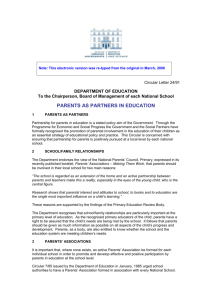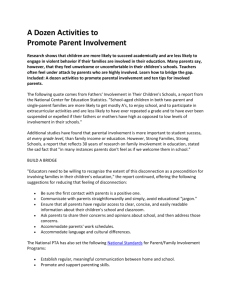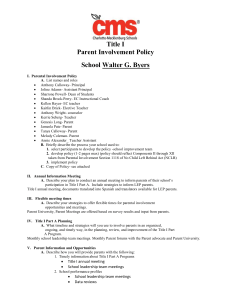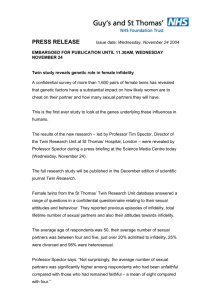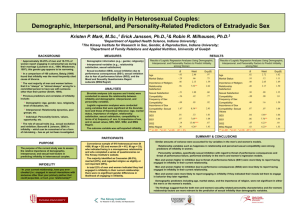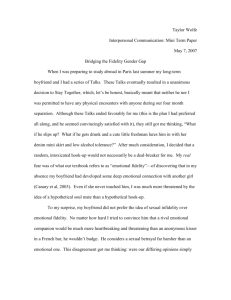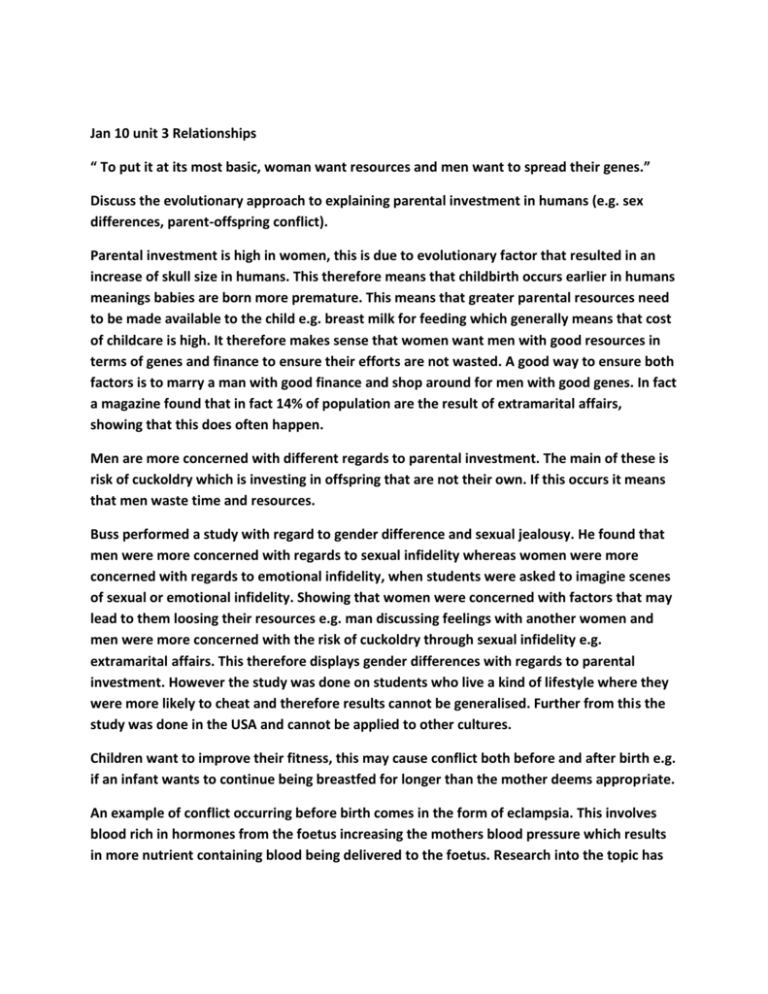
Jan 10 unit 3 Relationships
“ To put it at its most basic, woman want resources and men want to spread their genes.”
Discuss the evolutionary approach to explaining parental investment in humans (e.g. sex
differences, parent-offspring conflict).
Parental investment is high in women, this is due to evolutionary factor that resulted in an
increase of skull size in humans. This therefore means that childbirth occurs earlier in humans
meanings babies are born more premature. This means that greater parental resources need
to be made available to the child e.g. breast milk for feeding which generally means that cost
of childcare is high. It therefore makes sense that women want men with good resources in
terms of genes and finance to ensure their efforts are not wasted. A good way to ensure both
factors is to marry a man with good finance and shop around for men with good genes. In fact
a magazine found that in fact 14% of population are the result of extramarital affairs,
showing that this does often happen.
Men are more concerned with different regards to parental investment. The main of these is
risk of cuckoldry which is investing in offspring that are not their own. If this occurs it means
that men waste time and resources.
Buss performed a study with regard to gender difference and sexual jealousy. He found that
men were more concerned with regards to sexual infidelity whereas women were more
concerned with regards to emotional infidelity, when students were asked to imagine scenes
of sexual or emotional infidelity. Showing that women were concerned with factors that may
lead to them loosing their resources e.g. man discussing feelings with another women and
men were more concerned with the risk of cuckoldry through sexual infidelity e.g.
extramarital affairs. This therefore displays gender differences with regards to parental
investment. However the study was done on students who live a kind of lifestyle where they
were more likely to cheat and therefore results cannot be generalised. Further from this the
study was done in the USA and cannot be applied to other cultures.
Children want to improve their fitness, this may cause conflict both before and after birth e.g.
if an infant wants to continue being breastfed for longer than the mother deems appropriate.
An example of conflict occurring before birth comes in the form of eclampsia. This involves
blood rich in hormones from the foetus increasing the mothers blood pressure which results
in more nutrient containing blood being delivered to the foetus. Research into the topic has
found that women with high blood pressure are less likely to miscarry which can be explained
in terms of more nutrient blood being delivered to the foetus making it stronger and is also
supported by larger babies as they will have had more nutrient containing blood increasing
size.
Conflict also occurs after birth in which older children may attempt to stop parents investing
their resources in younger siblings. However research has found that younger siblings do not
compete for resources, they simply co-operate and negotiate with people suggesting why
they find it easier to form relationships outside the family when they are older.
Sibling rivalry may also occur which can cause conflict. It involves siblings competing for their
own share of parental resources. Research has found that in order to cope with this parents
try to steer their children down different paths (e.g. career) to ensure they do not compete
over some resources.
AO1 – 8
AO2 - 10






